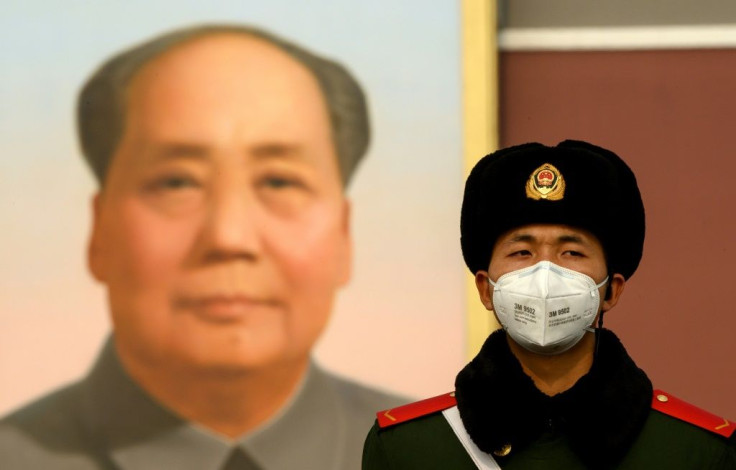Wednesday's Stock Market Open: US Equities Rise On Hopes China Contains Virus Spread

KEY POINTS
- Coronavirus deaths in China have nor surpassed 2,000
- China may help its crippled airline industry with huge cash injections
- Consumer prices in the U.K. rose unexpectedly by 1.8% in January
Update: 12:05 p.m. EST
U.S. stocks traded higher at noon on Wednesday as investors appeared relieved that China is taking concrete measures to help companies harmed by the spread of coronavirus.
The Dow Jones Industrial Average gained 141.11 points to 29,373.30 while the S&P 500 rose 19.18 points to 3,389.47 and the Nasdaq Composite Index climbed 91.05 points to 9,823.79.
In Europe markets finished higher, as Britain’s FTSE-100 gained 1.02%, France’s CAC-40 climbed 0.9% and Germany’s DAX rose 0.79%.
Original story:
U.S. stocks opened on Wednesday on hopes that Chinese officials have made progress on containing the spread of the coronavirus and seeking to help businesses hurt by the epidemic.
The Dow Jones Industrial Average gained 103.03 points to 29,335.22 while the S&P 500 rose 11.16 points to 3,381.45 and the Nasdaq Composite Index climbed 50.48 points to 9,783.22.
Chinese health officials reported the country now has confirmed 74,185 cases of coronavirus and 2,004 cumulative deaths.
“Encouraging signs have continued to emerge over the past week that China’s coronavirus outbreak ... is contained,” said Yan Wang, emerging markets and China strategist at Alpine Macro. “China’s stringent quarantine requirements will likely soon be relaxed, and the government’s focus will shift quickly from containing the virus to supporting the economy.”
China may seek to rescue its crippled airline industry with huge cash infusions or by allowing smaller carriers to merge into larger ones. Airlines have been particularly hit hard by the virus.
Morgan Stanley analysts warned in a report on Wednesday that China’s economic growth could fall to as low as 3.5% in the first quarter if the spread of the virus is not contained soon.
“Based on the evidence that [manufacturing] activities are currently resuming at a very gradual pace, we think that the current situation would be more in line with the scenario of ‘gradual normalization,’” the analysts wrote. “Given the uncertainties around the spread of the virus, we are watching the risks of transitioning to a scenario of ‘extended disruption.’”
Anne Anderson, head of fixed income at UBS Asset Management in Sydney, said: “It’s important to contextualize the impact of the virus -- we’re not expecting a permanent cut in global growth. The combination of the fiscal-monetary and the belief that we will transition through this over the coming months mean we’re still on steady footing.”
Consumer prices in the U.K. rose unexpectedly at an annual rate of 1.8% in January -- a six-month high – up from 1.3% in December, not far from the Bank of England’s 2% inflation target.
“The rise in inflation is largely the result of higher prices at the pump and airfares falling by less than a year ago,” said Mike Hardie of the Office for National Statistics.
In the U.S., The producer price index rose 0.5% in January -- the biggest increase in 15 months.
Construction on new homes fell 3.6% in January to an annual pace of 1.57 million, however permits rose by 9.2% to an annual rate of 1.55 million, the highest level since March 2007.
Overnight in Asia, markets finished mixed. China’s Shanghai Composite fell 0.32%, while Hong Kong’s Hang Seng fell 0.46%, and Japan’s Nikkei-225 gained 0.89%.
In Europe markets trade higher, as Britain’s FTSE-100 gained 0.83%, France’s CAC-40 climbed 0.74% and Germany’s DAX rose 0.59%.
Crude oil futures jumped 1.58% at $52.87 per barrel and Brent crude rose 1.84% at $58.81. Gold futures rose 0.26%.
The euro slipped 0.03% at $1.0791 while the pound sterling fell 0.33% at $1.2955.
© Copyright IBTimes 2025. All rights reserved.




















